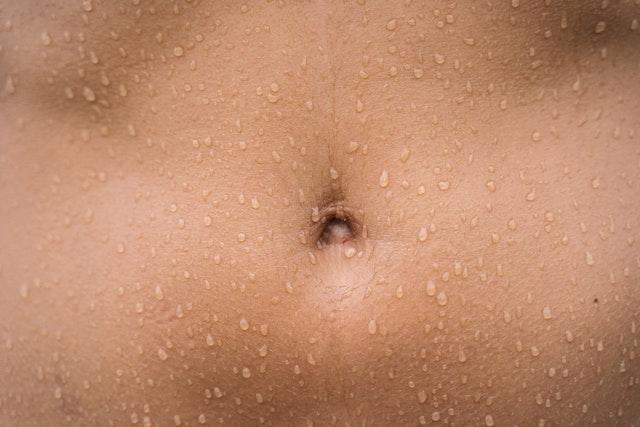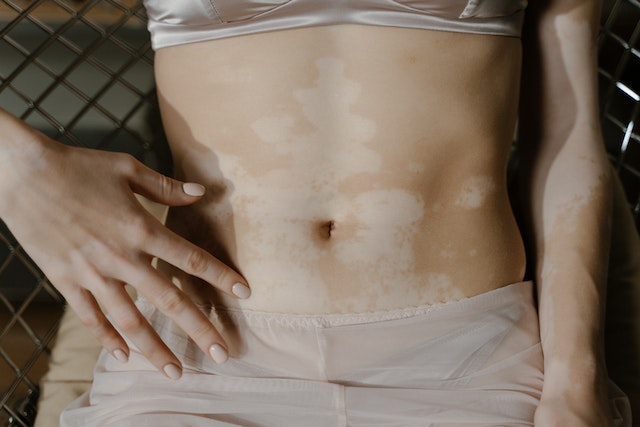
Your belly button may be a strange and seemingly insignificant part of your body, but it actually plays an important role in maintaining good health.
This small, often overlooked area can become the site of unpleasant odors and infections if not properly cared for.
Understanding why your belly button smells, as well as how to prevent this from happening, can help you keep your belly button and the rest of your body healthy and clean.
- Read also: What Is The Benefits Of Cold Showering For Your Health
- Read also: What Happens When You Eat Mold
What causes a belly button to smell?

There are several possible factors that can contribute to the development of an unpleasant odor in your belly button. The includes:
Poor hygiene and cleaning habits.
Poor hygiene and cleaning habits are one of the main causes of a smelly belly button.
If you do not regularly clean and wash your navel, dirt, bacteria, dead skin cells, sweat, and other substances can accumulate in this area, leading to odor and potential infection.
Surrounding skin issues.
Surrounding skin issues, such as fungal infections or ingrown hairs, can also contribute to a smelly belly button.
Fungal infections, such as yeast infections or athlete’s foot, are common in the warm and moist environment of the navel.
Similarly, ingrown hairs around the navel may become infected and lead to a buildup of bacteria and other substances that can cause an unpleasant odor.
Wearing tight clothing.
Wearing tight clothing that does not allow your belly button to breathe properly can contribute to the development of a smelly belly button.
This is because tight clothing can trap moisture and heat in this area, creating an environment that is ideal for the growth of bacteria and other substances that can cause odor or infection.
Excess sweating or buildup of bacteria.
Excess sweating or buildup of bacteria in the area due to moisture and lack of airflow can contribute to a smelly belly button.
This is because excessive sweat and moisture create an ideal environment for the growth of bacteria and other substances that can cause odor or infection.
Additionally, a lack of airflow in this area can prevent moisture from evaporating, which can also lead to a buildup of bacteria and other substances that can make your belly button smell.
Poor diet and/or health conditions.
Poor diet and/or health conditions, such as diabetes or obesity, can have a significant impact on the balance of bacteria in your body.
These conditions can cause changes in the types and amounts of bacteria present in your gut, leading to an overgrowth of some types of bacteria and reduced levels of others.
This imbalance can increase your risk of developing infections or other conditions, such as excessive body odor, that are by an overgrowth of certain types of bacteria.
Irritants.
Irritants, such as chemical products or cleaning agents, can be a major contributor to the development of an unpleasant odor in your belly button.
These substances can come into direct contact with your navel when you are using certain hygiene and cleaning products, such as soaps, detergents, or household cleaners.
They may also lead to irritation and inflammation of your belly button, which can further exacerbate the problem of odor.
Medical conditions or medications.
Medical conditions or certain medications may also be a contributing factor.
For example, certain types of diabetes can make you more prone to skin and fungal issues that can lead to an increase in the growth of bacteria and other substances in your navel, which can result in a smelly odor.
When to see a doctor?
If you are experiencing persistent or severe odor in your belly button, it is important to see a doctor.
This could be a sign of an underlying medical condition, such as diabetes or skin irritation, that may require professional treatment.
Additionally, seeking medical help can ensure that any underlying infections or conditions are properly diagnosed and treated to prevent further complications.
How do you clean your belly button?

There are a few different ways to clean your belly button, depending on its type and the source of any odor. Some general tips for cleaning your belly button include:
Using gentle soap and water to wash the area
One of the best ways to clean your belly button and help prevent unpleasant odors is to use gentle soap and water.
This can be done by simply washing the area using a mild, fragrance-free soap and water.
It is important to avoid using harsh or over-the-counter cleaning products in this area, as these may contain chemicals or other substances that can irritate your skin and further exacerbate the problem of odor.
Keeping it dry and exposed to airflow when possible
One of the best ways to prevent an unpleasant odor in your belly button is to keep it dry and exposed to airflow when possible.
This can be done by taking certain steps to ensure that moisture and bacteria do not build up in this area, such as wearing loose-fitting or breathable clothing, frequently washing the area with a block of mild soap and water, and using a cloth or other gentle material to dry the area after bathing or showering.
Avoiding harsh chemical products or irritants.
There are a number of steps you can take to avoid the use of harsh or chemical products that may exacerbate any odor or irritation in your belly button.
These include avoiding products with strong fragrances, such as soaps, detergents, or household cleaning agents.
It is also important to avoid over-the-counter body care and hygiene products that may contain harsh chemicals or other substances that can irritate the skin in your navel.
- Read also: What Happens if You Swallow Gum
- Read also: Why Do My Armpits Smell Like Onions
The takeaway
If you are experiencing an unpleasant odor in your belly button, there are several possible causes that may need to be evaluated by a doctor.
Some of these include medical conditions or medications, irritants such as chemical products or cleaning agents, and changes in the types and amounts of bacteria present in your gut.
To help prevent or treat this problem, it is important to practice good hygiene and cleanliness, avoid harsh chemicals or irritants, and keep your belly button dry and exposed to airflow as much as possible.
Additionally, seeking medical help can help ensure that any underlying infections or conditions are properly diagnosed and treated in order to prevent further complications.



